Well, Tit My Tat
TIT: Meaningful Use implementation has become “detrimental to the very patient population it is designed to engage and empower.” (From EMR & HIPAA – Mandi Bishop)
TAT: Since its onset, MU has stirred a bazillion more providers and provider organizations out of their entrenched paper bunkers than all the glam and glitz and overpromises of the entire EHR industry. Patients can’t see the rewards of MU implementation until providers are truly using meaningfully. (They’re just starting to do so.)
TIT: EHRs, with all their required clicks and dropdowns and menus and pop-ups take sooooo long to navigate; they take up too much provider-patient time.
TAT: Try and document to the same degree with paper charts – making the output legible, mind you – and retrieve the same info you can via even a poorly designed EHR. How long did it take your staff to find the paper chart you needed? How long did it take to look up those drug-to-drug interactions in that ten-pound PDR? (Could you even read the tiny print?) How many times do you require patients to fill out those same, stupid paper forms and how long does that take?
TIT: Getting patients to understand the patient portal, plus getting them enrolled, takes an enormous amount of time away from patient care.
TAT: Getting anyone to do something new takes effort. If you’re providing them a quality patient portal that gives them self-care value, aren’t you actively engaged in patient care as you help them engage? It’s like teaching someone to ride a bike; it takes some time at first, but once they’re off on two wheels, they won’t need you anymore and will be wheeling happily away to a happier, enabled future.
TIT: Referring a patient – finding the provider’s HISP address and sending the Summary of Care document via Direct – takes so much time and even then the system doesn’t always work right.
TAT: Go ahead. Refer a patient the old-fashioned way. Send them without supporting documentation. Send them with minimally legible paper records via fax or snail mail. Send them with paper records tucked under the patient’s arm (still just as minimally legible.) It may save you time, but what about all the redundant discovery time it takes the specialist to discover what he/she doesn’t get from you or that he/she cannot decipher in your records? Duplication and redundancy and repetition and reiteration and replication and recurrence of effort is such a waste. Plus, the specialist probably charges a lot more for their time, thus the healthcare system as a whole just spent more money covering this superfluous labor. Talk about not working right.
TIT: MU has stalled the innovative spirit of the EHR industry.
TAT: Have you seen the number of new EHRs, new HIT tools, and the new developments in many legacy systems of late? Could innovation have been faster without MU? Maybe, but if the marketplace was still where it was back in 2009, would the industry be growing with just a 17-20% provider adoption rate?
TIT: Lots of providers are starting to balk at moving forward with MU – 17 percent by some accounts. MU has just become too cumbersome.
TAT: Turning that around a bit says that 83 percent of providers are still planning on MUving ahead. Let’s see then…17 percent using an EHR/EMR versus 83 percent trying to use one and do so with some connected purpose…? And some people say MU hasn’t made much difference?!?
TIT: MU isn’t right for everyone.
TAT: What is? How can you design anything, especially something on such a grand scale, which works well for everyone? Hector’s pup, even the iconic iPad isn’t right for everyone.
TIT: MU penalties will hurt those who don’t adopt.
TAT: Yep. Haven’t seen anything that’s worthwhile that doesn’t have some pain associated with its birth.
From the trenches…
“We’re still in the birth pangs of this giant HIT baby we’re all trying to deliver.” – Dr. Gregg

Dr. Gregg Alexander, a grunt in the trenches pediatrician at Madison Pediatrics, is Chief Medical Officer for Health Nuts Media, an HIT and marketing consultant, and sits on the board of directors of the Ohio Health Information Partnership (OHIP).









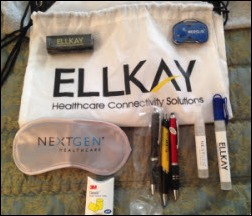






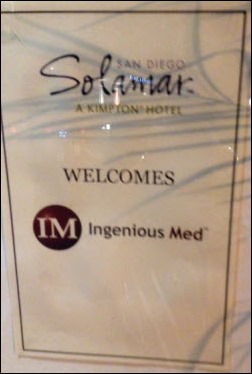
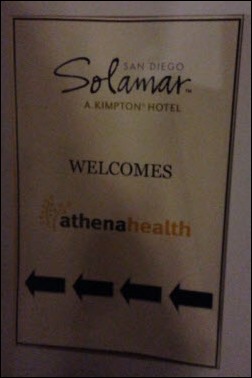














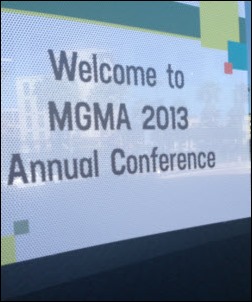




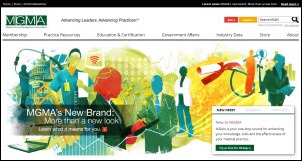





The article about Pediatric Associates in CA has a nugget with a potentially outsized impact: the implication that VFC vaccines…